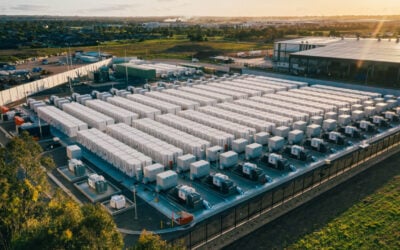Some home energy storage systems, such as those increasingly used with PV, have potential safety flaws that could lead to an increased risk of fire, according to a study by German researchers.
Scientists at the Karlsruhe Institute of Technology (KIT) in south-west Germany claim to have discovered inadequate safety testing in some commercially available lithium-ion battery (li-on) systems.
Their study looked at whether li-on home storage products were being subjected to the same safety tests as batteries used in the established electric vehicle market and concluded they are not.
Without naming any specific companies, KIT said some “black sheep” firms were not rigorously testing their products against certain safety standards, including UN38.3, which certifies li-on batteries for safe transportation. Researchers also highlighted inadequacies in other established standards, such as CE certification, which they said lacked detailed understanding of the science of li-on batteries.
Try Premium for just $1
- Full premium access for the first month at only $1
- Converts to an annual rate after 30 days unless cancelled
- Cancel anytime during the trial period
Premium Benefits
- Expert industry analysis and interviews
- Digital access to PV Tech Power journal
- Exclusive event discounts
Or get the full Premium subscription right away
Or continue reading this article for free
Lithium-ion batteries for domestic PV systems are not all safe, KIT has warned. Image: Kristoferb, Wikimedia Commons.
They said the failings they had unearthed supported reports from fire departments that suggest home storage systems are a cause of domestic fires.
KIT’s Competence E project, which has been leading the study, has produced a check-list for installers to use as a guide to understanding the safest products on the market.
“Lithium-ion batteries can be extremely reliable if the manufacturer has the necessary know-how and some ‘golden rules’ to comply with,” said KIT’s Dr. Olaf Wollersheim.
“The guide is intended to serve as a rough checklist with which even non-experts can separate the wheat from the chaff.”
Andreas Gutch, co-ordinator of the project, added: “The automotive industry, which develops and produces lithium-ion batteries, is showing how it goes. The standards used there must be transferred to home storage, so that the black sheep disappear.”
Leading inverter and storage manufacturer, SMA Solar, questioned the “undifferentiated” nature of KIT’s study and said it could lead to “unnecessary insecurity” among consumers.
The company’s storage expert, Martin Rothert, said the two SMA home storage products currently on the market, Sunny Boy Smart Energy and Sunny Island, had been fully tested and contained safety features that ruled out any of the problems highlighted by KIT.
KIT scientists will be at Intersolar Europe in Munich next week to present more on their findings. They will be at booth B1.239.





